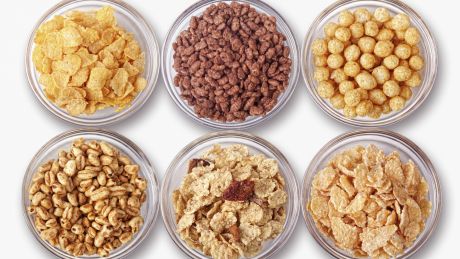8 Healthy Foods that are Totally Lying to You
Don’t let the labels fool you, these 'healthy' foods could be the reason you’re not losing weight

Frozen Yoghurt
This seems the healthy alternative to ice cream. In terms of saturated fat, it is. However in terms of simple sugars and calories, they are surprisingly similar. With the option of multiple portion sizes and an abundance of sweet toppings, fruit and sugary syrups – the calories stack up! Our advice is to stick to the smallest size and top with fresh fruit and low-fat content nuts like roasted almonds and pistachios.
Fat-free treats
Fat free cakes, muffins and cookies are deceiving. While they give the impression that “fat-free” means “calorie-free”, and so indicate that we can eat more of them, what it actually means is more sugar is put into these products to replace the fat. Calorie intake therefore, still remains high.
Salads
Just because it contains the word “salad” doesn’t necessarily mean its low in calories. A large part of this deceit is the inclusion of mayonnaise and oil based dressings or meat marinades as they contain high fat content and are unnecessary added calories. We recommend using ether low-fat mayonnaise, or alternatively using a drizzle of balsamic vinegar and oil, or something like Dijon mustard.
Smoothies
Whilst they contain ingredients that provide the healthy vitamins, minerals and nutrients our bodies need, they also clock up the calories, big time. Fruits, particularly, contain high levels of natural sugars and when mixed with a fat based mixer such as cream or yoghurt, laced with any other sugary syrups, they can amount to over 650 calories. Our advice is to only have them occasionally and as an alternative to a meal on a workout day.
Energy bars
Many people think energy bars are a great pre-workout snack, wrong. They contain high amounts of fructose corn syrup, saturated fats and added sugar, whilst often being loaded with other synthetic ingredients. Energy bars, particularly those coated with chocolate, can be an extremely high-calorie, small snack. Instead, we recommend opting for wholegrain crackers and low-fat cheese.
Sports drinks
Don’t be fooled by marketing plugs from sports energy drinks companies, they are not essential to your workout, unless it’s of high intensity or endurance, and especially not outside of activity. They contain around 15 grams of sugar or more per 600ml and provide unnecessary extra calories. Try and skip the energy drinks for lighter activity and opt for water or another calorie-free drink to keep you hydrated.
Granola
While the base ingredients to this are healthy oats, dried fruit, nuts and seeds, they are coated in sugar, honey and molasses, and then baked in oil. Just one 130g serving contains near to 600 calories and 20g of sugar, and that’s before any addition of milk or yoghurt, and any other toppings. We suggest you try and live without this on your breakfast menu.
Sign up for workout ideas, training advice, reviews of the latest gear and more.
Reduced-fat peanut butter
This is not necessarily the healthier alternative to regular peanut butter as, although reduced-fat peanut butter contains less fat, it contains significantly more sugar and a similar amount of calories to regular peanut butter. Regular peanut butter actually contains a healthy source of natural monounsaturated fats, which have been proven to decrease the likelihood of developing type II diabetes and heart disease. Our advice is to look for a natural peanut butter that contains no added oils, trans-fats or cane sugar, if you still need your fix.
